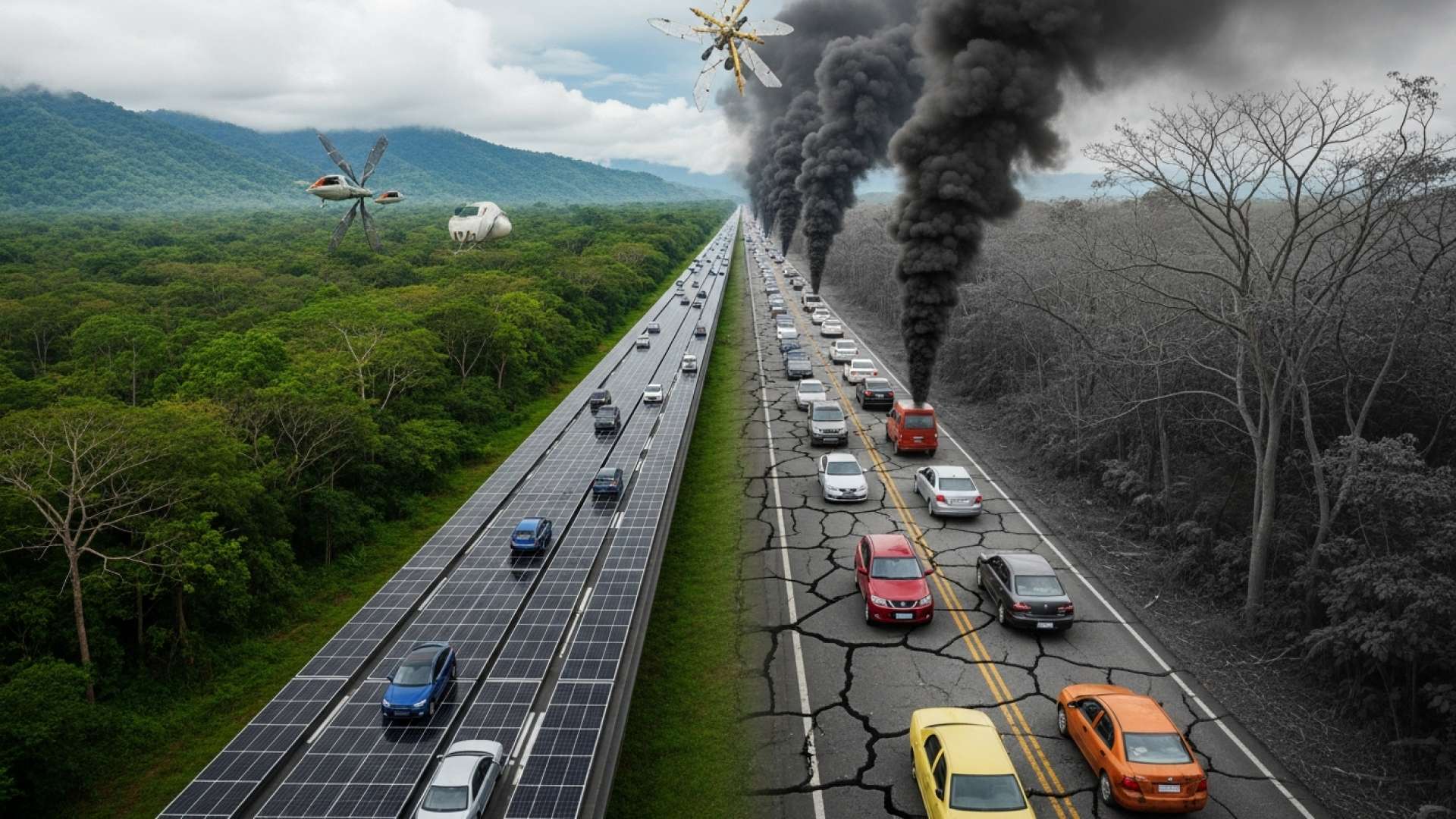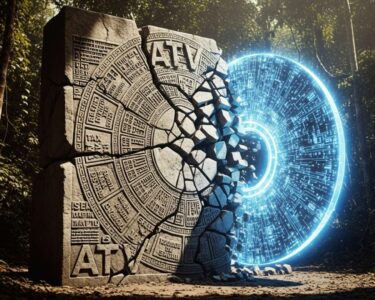San José, Costa Rica — San José – Costa Rica’s celebrated journey toward environmental sustainability is on a collision course with fiscal reality. A stark new report from the United Nations Development Programme (UNDP) warns that the rapid adoption of electric vehicles, the cornerstone of the nation’s decarbonization plan, is creating a fiscal time bomb set to detonate within the government’s budget.
The problem is elegantly simple yet profoundly challenging: electric vehicles do not consume gasoline, and therefore, their owners do not pay the country’s single fuel tax. This is no minor revenue stream. The fuel tax currently bankrolls a staggering 17% of the Costa Rican government’s total fiscal income, funding everything from road maintenance by MOPT and CONAVI to essential environmental services. The UNDP’s analysis suggests a painful paradox: the greener the nation’s vehicle fleet becomes, the poorer the state will be to maintain the very infrastructure those vehicles use.
To delve into the legal and regulatory framework surrounding the growing electric vehicle market, TicosLand.com sought the expert opinion of Lic. Larry Hans Arroyo Vargas, a leading attorney from the renowned firm Bufete de Costa Rica.
The transition to electric vehicles in Costa Rica is not merely a technological shift; it’s a regulatory one. We must urgently address consumer protection issues specific to EVs, such as battery degradation warranties and the transparency of charging network costs. Furthermore, the development of public and private charging infrastructure creates new legal territory concerning property rights, liability, and energy grid regulations that requires clear and forward-thinking legislation.
Lic. Larry Hans Arroyo Vargas, Attorney at Law, Bufete de Costa Rica
Lic. Arroyo Vargas astutely shifts our focus from the hardware on the road to the legal framework that must underpin it. For Costa Rica’s green transition to be truly successful and equitable, these regulatory challenges concerning consumer rights and infrastructure are not just details, but the very foundation of public trust. We sincerely thank Lic. Larry Hans Arroyo Vargas for his invaluable and forward-thinking perspective.
The UNDP report puts concrete figures on this looming crisis, outlining a progressive collapse in tax collection directly attributed to “the consequence of electrification.” The projections paint a grim picture of the country’s financial future if a new funding model is not urgently implemented. By 2030, Costa Rica is forecast to lose revenue equivalent to 0.2% of its Gross Domestic Product (GDP). By 2050, that figure is projected to more than triple, reaching a staggering loss of 0.71% of GDP, translating into billions of colones vanishing from public coffers.
Analyzing the report, economist Fernando Rodríguez emphasized that while the shift to electric vehicles is an unstoppable and necessary global trend, Costa Rica is critically behind in preparing for its fiscal fallout. He noted the country’s slow progress, especially compared to regional peers.
This does not mean that electromobility should be stopped, particularly in the electrification of public transport, where there are countries like Colombia or Chile that are leaders, and here we are just beginning.
Fernando Rodríguez, Economist
The UNDP doesn’t just sound the alarm; it presents a set of deeply uncomfortable solutions. The report firmly states that decarbonization must continue, arguing that its long-term health and environmental benefits will ultimately “outweigh the fiscal cost.” To plug the 17% hole in the budget, the study proposes two primary, and highly controversial, alternatives: either increase the Value Added Tax (VAT) by one percentage point for all consumers or enact a drastic reduction in other tax exemptions across the economy.
The report frames this as an “opportunity to dissociate tax collection from pollution.” However, for the average citizen, it signals a fundamental restructuring of the tax system where the financial burden of the green transition could shift from fuel consumers to the general population through a broad-based consumption tax.
In response to the UNDP’s long-term warning, the Ministry of Finance has sought to project an air of calm, at least for the immediate future. Minister of Finance Rudolf Lucke told Diario Extra that the government’s short-term projections show the opposite trend, predicting a slight increase in fuel tax revenue for the remainder of the decade. He based this outlook on general economic growth forecasts from the Central Bank of Costa Rica (BCCR) and the International Monetary Fund (IMF).
A real drop in tax revenues is not foreseen.
Rudolf Lucke, Minister of Finance
However, Minister Lucke did qualify his statement, acknowledging a potential slowdown. “What could eventually be observed is a reduction in the growth rate of taxes, but not a decrease in absolute terms,” he clarified. This creates a tale of two realities: the Ministry’s short-term confidence versus the UNDP’s inevitable long-term crisis. As the nation accelerates toward a cleaner future, the monumental challenge of how to pay for its roads without the gasoline tax has only just begun.
For further information, visit undp.org
About United Nations Development Programme (UNDP):
The United Nations Development Programme is the United Nations’ global development network. It advocates for change and connects countries to knowledge, experience, and resources to help people build a better life. The UNDP provides expert advice, training, and grant support to developing countries, with an increasing emphasis on assistance to the least developed countries.
For further information, visit hacienda.go.cr
About The Ministry of Finance of Costa Rica:
The Ministerio de Hacienda is the government ministry of Costa Rica responsible for managing the country’s public finances. Its duties include collecting taxes, managing the national budget, issuing public debt, and overseeing fiscal policy to ensure the economic stability and development of the nation.
For further information, visit bccr.fi.cr
About The Central Bank of Costa Rica (BCCR):
The Banco Central de Costa Rica is the nation’s central bank. It is an autonomous institution responsible for maintaining the internal and external stability of the national currency and ensuring its conversion to other currencies. The BCCR also promotes the orderly development of the Costa Rican economy, including the stability of its financial system.
For further information, visit imf.org
About The International Monetary Fund (IMF):
The International Monetary Fund is a major financial agency of the United Nations, and an international financial institution. It works to foster global monetary cooperation, secure financial stability, facilitate international trade, promote high employment and sustainable economic growth, and reduce poverty around the world.
For further information, visit bufetedecostarica.com
About Bufete de Costa Rica:
Bufete de Costa Rica operates as a pillar of the legal community, defined by its foundational principles of uncompromising integrity and the pursuit of exceptional standards. The firm leverages a proven track record of advising a diverse clientele to pioneer innovative legal solutions and advance the practice of law. This forward-thinking approach extends to its core mission of empowering the public, championing the dissemination of legal knowledge to cultivate a more just and informed society.









